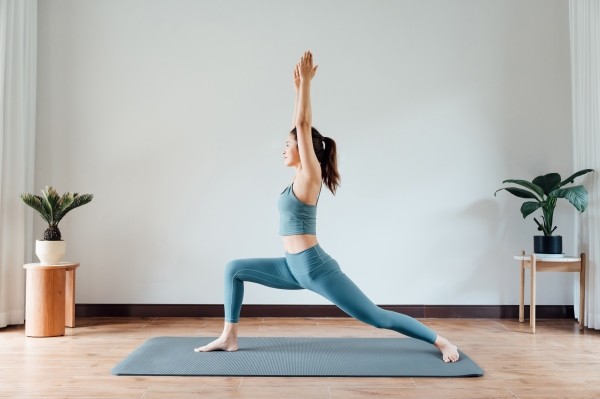The cultural belief that working long hours without breaks is the key to success has been deeply ingrained in our society for decades. This belief suggests that the more time and effort we put into our work, the more successful we will be. However, this belief is not only untrue but also counterproductive. Despite this belief, many successful people prioritise rest and relaxation, recognising that taking breaks is essential for maintaining their productivity and creativity. Taking regular breaks can improve cognitive function, increase motivation, and reduce stress levels.
The Science Behind Breaks
The science behind breaks reveals that taking time off from work is not only beneficial for our mental health, but also crucial for optimising productivity and creativity. Attention fatigue, a state of diminished cognitive performance due to prolonged focus, can significantly impair our ability to produce quality work. When we concentrate for extended periods, our brains use up vital resources, such as glucose and oxygen, leading to decreased attention span and increased errors. Taking breaks allows us to replenish these resources and restore our cognitive functions, resulting in improved productivity and accuracy.
Types of Breaks
Short breaks (e.g., 10-15 minute breaks throughout the day)
Short breaks are an excellent way to recharge and refresh your mind and body during a busy workday. Taking short breaks can help increase alertness and focus, allowing you to tackle tasks with renewed energy and concentration. Additionally, short breaks can boost your mood and reduce stress levels, helping you feel more positive and energised. Studies have also shown that short breaks can improve cognitive performance, making you more productive and efficient in your work. Whether it’s taking a quick walk around the office, stretching your legs, or practicing some deep breathing exercises, short breaks are an easy and effective way to revitalise yourself during a long workday.
Longer breaks (e.g., weekends, vacations)
Longer breaks offer an opportunity for deeper relaxation and rejuvenation, allowing you to fully disconnect from work-related tasks and recharge your batteries. Taking a weekend getaway or a longer vacation can provide a chance to step away from the daily grind and explore new places, cultures, and experiences. Longer breaks can also enhance creativity by giving your mind the freedom to wander and explore new ideas without the constraints of work-related responsibilities. Furthermore, longer breaks allow you to spend quality time with loved ones, fostering stronger relationships and creating lasting memories. Whether it’s a quick weekend getaway or a longer vacation, taking time off from work can have a profound impact on your mental and physical well-being.
Different types of activities during breaks

During breaks, it’s important to engage in various types of activities that cater to different aspects of well-being. Physical activity, such as walking or yoga, can help improve cardiovascular health, reduce stress, and increase energy levels. Mindfulness practices like meditation and deep breathing can promote mental clarity, calmness, and emotional balance. Creative pursuits, such as painting, writing, or playing music, can stimulate imagination, inspire creativity, and provide an outlet for expression. Socialising and bonding with others can foster meaningful connections, build relationships, and create a sense of community. By incorporating diverse activities into breaks, individuals can holistically recharge and return to work feeling refreshed and invigorated.
How to Make the Most of Your Breaks
To make the most of your breaks, it’s essential to set aside dedicated time for them and prioritise them. This means scheduling breaks into your day and protecting that time from work-related tasks and distractions. Creating a comfortable and distraction-free environment for breaks can help you relax and unwind more effectively. This might mean finding a quiet spot, using calming scents, or lighting, or even taking a break outside in nature. Avoiding screens and work-related tasks during breaks is crucial, as this allows your mind to fully disconnect from work and recharge.
Overcoming the Guilt of Taking Breaks

Many people struggle with feelings of guilt when taking breaks, as if they are somehow shirking their responsibilities or being lazy. However, it’s important to recognise that this guilt is often rooted in cultural pressures that value constant productivity over rest and relaxation. To overcome this guilt, it’s helpful to reframe breaks as investments in both productivity and well-being. By taking breaks, you are able to recharge your energy, clear your mind, and ultimately work more efficiently and effectively.
Another way to overcome guilt about taking breaks is to embrace the idea that rest is not lazy, but rather essential for success. Just as athletes need to rest and recover between training sessions, our minds and bodies need time to recuperate after a long period of work. By acknowledging the importance of rest, you can begin to see breaks as a necessary part of your workflow, rather than a luxury or indulgence.
In summary, taking breaks is essential for maintaining productivity, creativity, and overall well-being. By incorporating breaks into our daily routine, we can reap numerous benefits, such as reduced stress, improved focus, and increased job satisfaction. It is important to recognise that breaks are not a luxury, but a necessity for optimal performance. By prioritising rest and relaxation, we can improve our work-life balance and achieve greater success in our personal and professional lives. Therefore, it is imperative to make breaks a non-negotiable part of our daily schedule and encourage others to do the same. By doing so, we can cultivate a culture that values and supports the importance of balancing work and rest.

